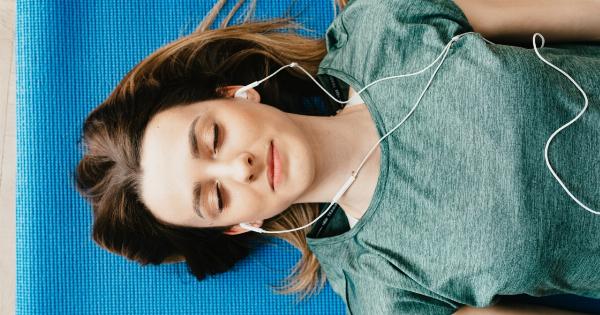It is a common belief that taking a shower immediately after eating can cause indigestion. Many people have been warned against this practice, fearing that the combination of hot water and a full stomach can lead to various digestive issues.
However, is there any truth to this claim, or is it merely an old wives’ tale? In this article, we will explore whether taking a shower after eating truly results in indigestion.
Understanding Digestion
Before delving into the effects of taking a shower post-meal, it is crucial to have a basic understanding of the digestion process.
When we consume food, it travels through our digestive system, which involves various organs such as the mouth, esophagus, stomach, and intestines. Each organ plays a specific role in breaking down the food into nutrients that can be absorbed by the body.
The Shower Myth
The belief that taking a shower after eating leads to indigestion primarily stems from the notion that the blood supply to the stomach increases during digestion.
This idea suggests that taking a shower diverts blood away from the digestive system towards the skin, potentially disrupting the digestive process and causing indigestion. However, is there any scientific evidence to support this claim?.
Scientific Perspective
Many experts argue that there is no direct scientific evidence linking taking a shower post-meal to indigestion.
The digestion process is highly complex and involves numerous factors, including the release of enzymes and the contraction of muscles, all of which operate independently of external factors like showering.
Moreover, the idea that blood is diverted away from the digestive system during a shower is flawed. While it is true that blood flow to the skin increases during a shower, this does not significantly impact the blood supply to the stomach.
The body has a well-regulated system that ensures blood flow is distributed to different areas as needed, and a short shower is unlikely to disrupt this balance.
Factors Affecting Digestion
While showering after eating may not directly cause indigestion, several other factors can affect digestion. It is essential to be mindful of these factors to maintain a healthy digestive system.
Some of the key factors that may contribute to indigestion include:.
1. Overeating
Eating in excessive quantities can strain the digestive system. When we overeat, the stomach gets filled beyond its capacity, leading to discomfort, bloating, and indigestion. It is advisable to consume moderate portion sizes to avoid such issues.
2. Eating Too Quickly
Chewing food adequately and eating slowly allows the digestive enzymes in our saliva to break down the food properly. Eating too quickly can hinder this process and make it harder for the stomach to digest the food effectively.
3. Consuming Certain Foods
Some foods are known to be harder to digest than others. Fatty, high-fiber, and spicy foods, as well as carbonated beverages, can lead to indigestion in some individuals.
It is important to be aware of one’s own tolerance to these foods and make appropriate dietary choices.
4. Lying Down Immediately
Lying down immediately after a meal can contribute to indigestion, as the horizontal position makes it easier for stomach acid to move up into the esophagus, causing heartburn.
It is recommended to wait at least two hours before lying down after a meal.
5. Underlying Medical Conditions
Some medical conditions, such as gastroesophageal reflux disease (GERD), gastritis, or ulcers, can make individuals more prone to indigestion and other digestive issues.
It is essential to consult with a healthcare professional if indigestion persists or worsens.
Conclusion
In conclusion, the myth that taking a shower after eating leads to indigestion appears to be unfounded. Scientific evidence suggests that showering does not disrupt the digestive process nor divert blood significantly away from the stomach.
However, it is important to be mindful of other factors that can affect digestion, such as overeating, eating too quickly, consuming certain foods, lying down immediately after a meal, and underlying medical conditions. By paying attention to these factors and maintaining a healthy lifestyle, individuals can promote optimal digestion and minimize the chances of indigestion.






























